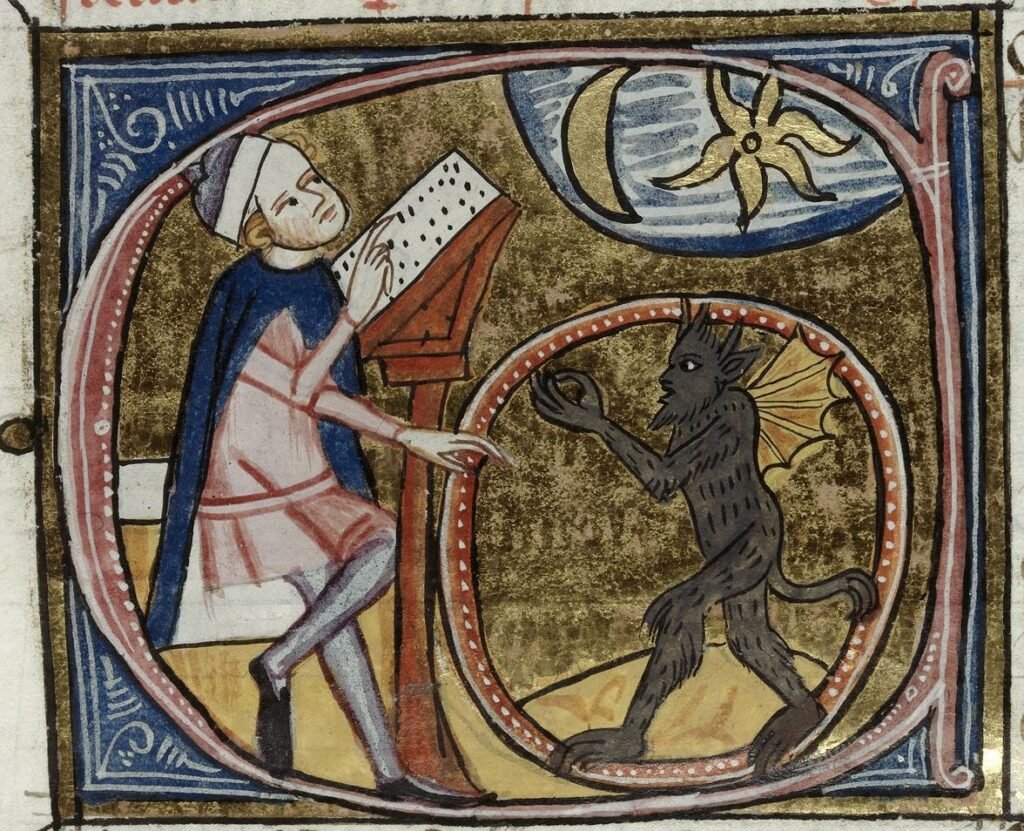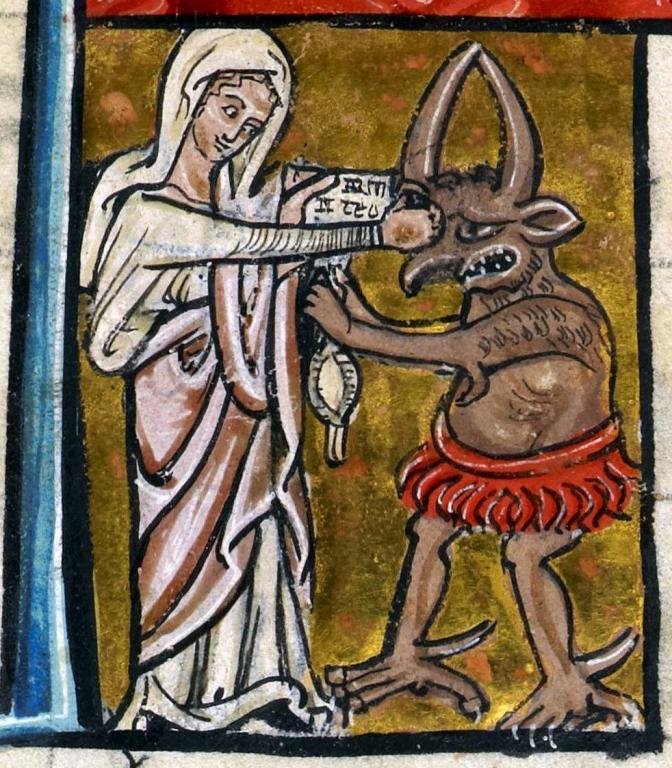To a hammer, everything looks like a nail. To a publicity-conscious demonologist everything stinks of sulphur.
Fr. Chad Ripperger is a celebrity exorcist with a vigorous following in certain Catholic circles. His disapproval of the Harry Potter series is well known among fellow traditionalists. He deems Harry Potter a wizard of dark magic, a caster of real spells and, consequently, a baneful influence.
It is an odd stance for a man with a bent for soft-core spell casting himself. Prior to the 2020 election, Ripperger recommended two prayers for “breaking oppression and sending evil back before the election is called.” The shorter of the two was intended to “expose evil and to teach that evil does not win”:
Jesus and Mary, I ask that if it be Your Holy Will, that any curses or evil sent against the President or the election process be sent back from whence they came.
This was a suggestive, though not explicit, request for a spell over election results. It accompanied Ripperger’s Consecration of One’s Exterior Goods to the Blessed Virgin Mary, a plunge into 2020 electoral magic. He put forward a sprawling invocation as”powerful” and “particularly useful” for keeping Satan’s claws off you and your possessions. (“Satan cannot touch” them.)
Read the entire incoherent jumble here. Meantime, this passage suffices:
Knowing that I have received rights over all my exterior goods by the promulgation of the Natural Law by the Divine Author, I deliver and consecrate to thee, as thy slave, all of my exterior goods, past, present and future; I relinquish into thy hands, my Heavenly Mother, all rights over my exterior goods, including our President, the fairness, honesty and accuracy of the outcome of the election, and our country and I retain for myself no right of disposing the goods that come to me but leave to thee the entire and full right of disposing of all that belongs to me, without exception, according to thy good pleasure, for the greater glory of God in time and in eternity. [Emphasis mine]
This is hocus pocus—necromancy mimicking Christian prayer with an Aquinasy-sounding riff on phrasing pulled from the Summa. (Ripperger substitutes the word exterior for Thomas’s external. They denote the same thing here.)

Fr. Ripperger uses St. Thomas to daze rather than inform. The Angelic Doctor treats external/exterior goods quite differently. For Aquinas, material resources facilitate good actions by which the habit of virtue is acquired. Together they enliven contemplation of a higher Good. Compare St. Thomas:
For imperfect happiness, such as can be had in this life, external goods are necessary, not as belonging to the essence of happiness, but by serving as instruments to happiness, which consists in an operation of virtue . . . . On the other hand, such goods as these are nowise necessary for perfect Happiness, which consists in seeing God.
The great saint’s rigor of mind is lost on a self-styled Thomist who does not think through the absurd implications of his own recipe for warding off evil. Ripperger’s consecration is not a petition. It is a spoken spell to insure pragmatic goals.
Which principles of natural law apply to my property and possessions? Once the Virgin Mary becomes, in effect, the designated repossession agent of all I own, can I still sell my house? Will it be her good pleasure to manage my IRA? If not, what happens then? How might Mary dispose of my 2012 Subaru? (Satan has likely had his way with it already. But it still runs!) Should I dismiss my estate attorney? And by what means can I grant Mary retrospective rights to “past” goods which I no longer possess?
What twist of logic affords each of us a proprietary right over the president, the electoral procedures, and voter intelligence? Over the entire nexus of political processes and its outcome? How are such actualities numbered among our “exterior goods”?
It is hard to shake the impression that, behind the simulacrum of rationality, Ripperger is less cogent than his online persona suggests.

• • • • •
Ripperger’s first consecration did not work. Voldemort had the last laugh in November, 2020. Nonetheless, Father repeats the charm this year.
Once again, he consecrates “the integrity of the election process and its outcome” to the Virgin Mary. [Scroll back to the previous post here.] In Ripperger’s lexicon, the word consecration signifies a cosmic end-run around the conflict between original sin and the will of God. Or, if you prefer, between gullibility and good sense.
Recite the right formula and Mary will resolve the contradiction.

• • • • •
Rites and rituals to stave off misfortune, gain control over the hazards of living, or subvert an enemy exist in virtually all cultures and belief systems. Protocols are deeply entrenched in the way pre-industrial societies—including the one in which Jesus lived—conceptualize illness, mental disorder, and modes of healing.
Exorcism is a broad, compelling topic. The struggle to distinguish between miracle (a matter of religious belief) and magic was a contest waged between Christian and pagan thinkers as long ago as the 2nd century. To keep this essay to a reasonable length, a further look into the subject, and to Fr. Ripperger’s approach to it, will continue in the next post.
Meantime, if you want homework, one of the most detailed, balanced, and comprehensive examinations of the miracles and exorcisms of Jesus, is volume two of A Marginal Jew by Fr. John P. Meier. It is a hefty text. Chapter 17 (“Miracles and Modern Minds”) and chapter 18 (“Miracles and Ancient Minds”) make a rewarding starting place.


